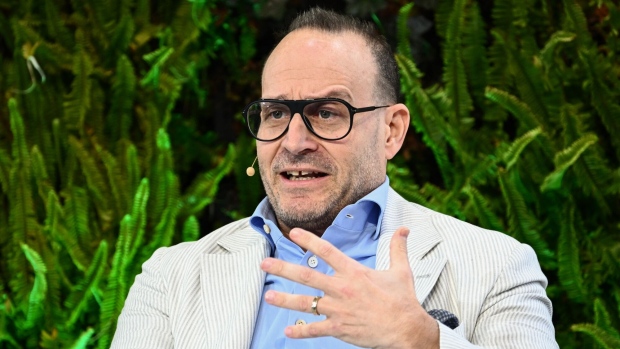Jul 4, 2024
Saks’ Online CEO Says Amazon to Help ‘Future-Proof’ Neiman Deal
, Bloomberg News

(Bloomberg) -- America’s two largest luxury department-store chains are combining — and they’ll rely in part on the tech expertise of Amazon.com Inc. and Salesforce Inc. to help them buck the struggles facing their sector.
The online juggernauts plan to take minority stakes in a new company that will be created from Saks Fifth Avenue’s acquisition of rival Neiman Marcus, also parent of Bergdorf Goodman, for $2.65 billion.
“How do you future-proof a brand like Saks or Neimans or Bergdorf? You do that through technology,” Marc Metrick, chief executive officer of Saks Fifth Avenue’s online operations, said in an interview. That includes gathering high-quality data on customers, analyzing it effectively to offer them more personalized options online and improving logistics to make it easier for consumers to shop.
“That’s what these companies can help us do,” Metrick said. He declined to disclose the value of the companies’ minority stakes.
Saks and Neiman bring luxury know-how to the partnership, including ties to customers who have shopped with the brands for years. “We know how to clientele. We have the bricks-and-mortar stores, which are always going to be an important part of a luxury ecosystem,” said Metrick, who’s set to become CEO of the combined company, Saks Global, when the deal closes.
He didn’t offer a time frame for the closing.
Saks Fifth Avenue owner Hudson’s Bay Co. is betting that the acquisition will give the combined company greater bargaining power with vendors, reduce supply-chain and other shared costs — and, thanks to Amazon and Salesforce, greater data and logistics capabilities as shopping increasingly moves online.
US department stores have been struggling for years and, in recent months, more of them have been mulling the best way to survive. Nordstrom Inc.’s founding family has said it’s considering taking the retailer private. Macy’s Inc. CEO Tony Spring is rolling out a turnaround plan, in part to address demands from activist investors.
‘About Growth’
Analysts have said they expect the Saks-Neiman deal to attract antitrust scrutiny from regulators, pointing to the increased number of merger challenges brought recently by the Federal Trade Commission.
“I have to respect the process that the FTC is going to go through,” Metrick said. Saks Global plans to improve the brands’ websites, including making it easier to search for merchandise and make offerings more personalized to each shopper, while also investing in stores. “As a consumer, you’re going to win,” he added.
Metrick declined to offer specifics on whether Saks plans to close stores or lay off employees.
“This is a combination that’s about growth,” he said. “This isn’t about shrinking.”
Saks Global plans to keep the Neiman Marcus and Bergdorf Goodman names on existing stores. That’s a nod to the importance Neiman has in the consumer landscape of cities like Dallas, where the department store was founded in 1907 and run by the Marcus family for more than half a century.
It’s also an acknowledgment of lessons learned from frustration and nostalgia in Chicago, whose locals were vexed when Macy’s changed the name of hometown favorite Marshall Field in 2006.
“It’s not about what we’re going to change with Neiman Marcus,” Metrick said. “It’s about what we’re not going to change about Neiman Marcus.”
©2024 Bloomberg L.P.





